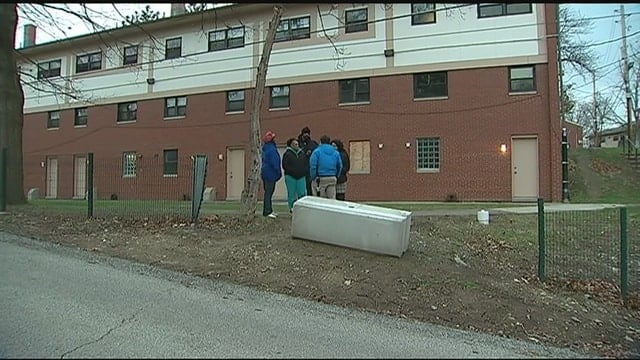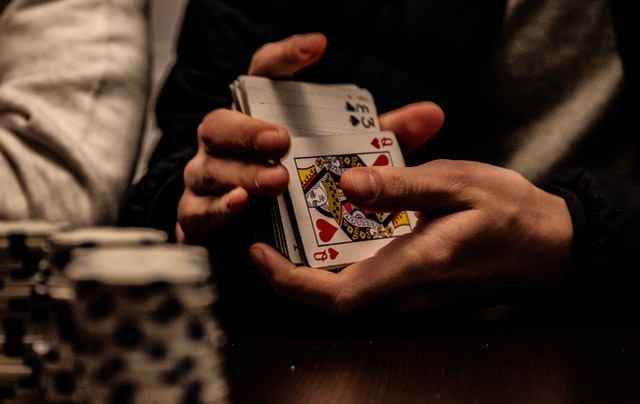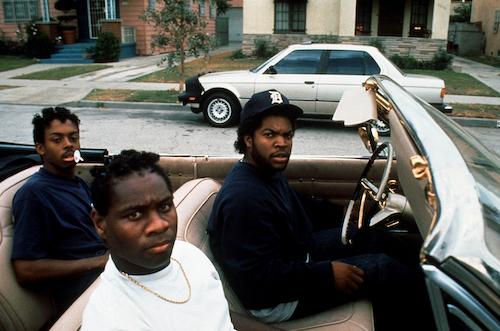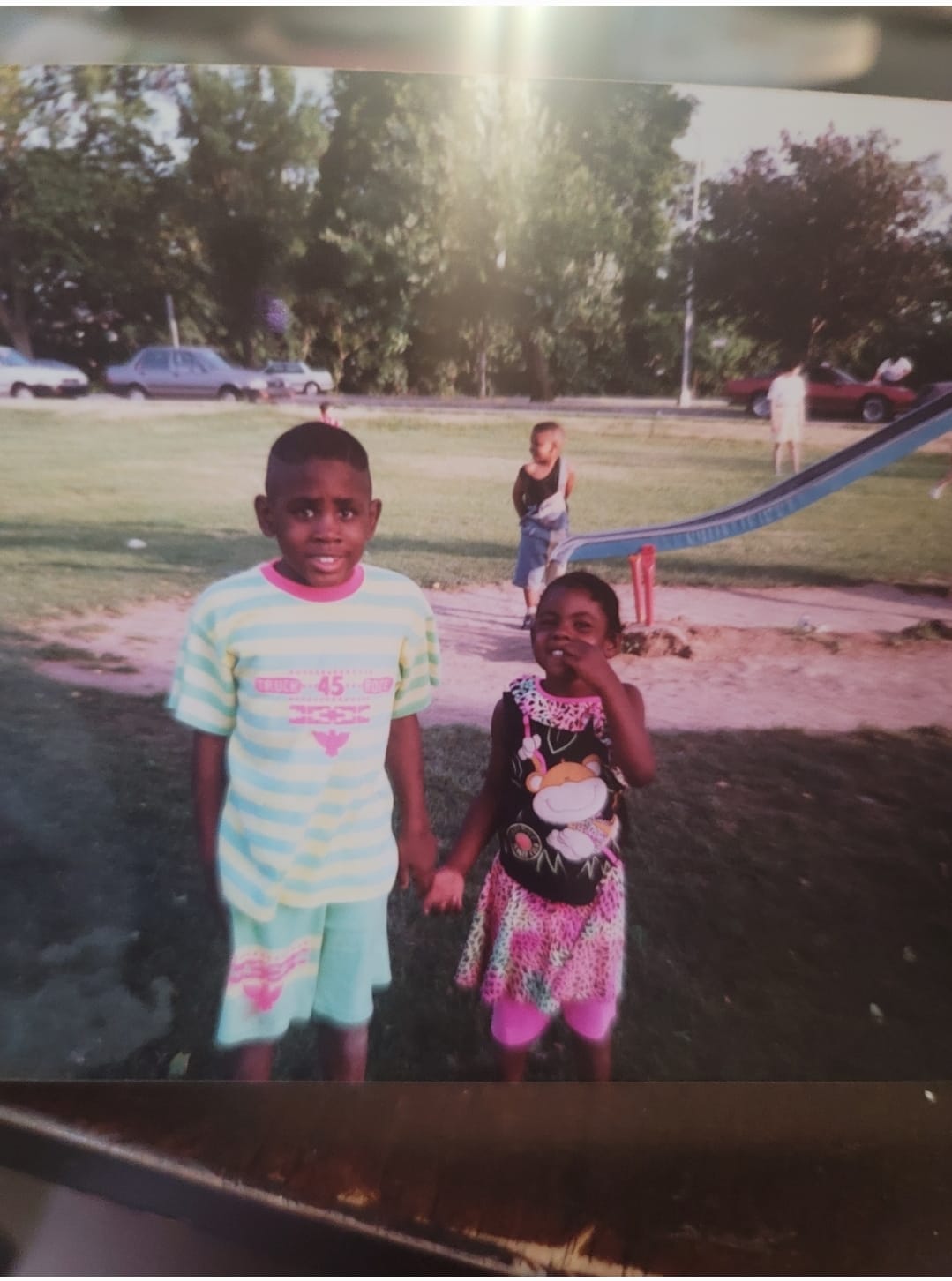I lived in the projects for the first 18 years of my life. A crackhead almost killed me (read that story and more here), I constantly got into fights, and I even saw a guy get killed.
It was a tough place to grow up. And while I’ve done well since leaving, my time in the ghetto taught me a lot about life.

What are the projects?
Before we get into the nitty-gritty of my ghetto wisdom, I realize some of you probably don’t know what the projects are.
The projects are areas of subsidized housing where rent is based on income.
This creates affordable housing for people who would otherwise be homeless. For the sake of cost and efficiency, there are rows and high-rises of identical homes and buildings.
Most public-housing residents aren’t bad people, but there are enough bad apples to ruin the whole basket. Along with low-cost public housing comes an increased crime rate.
As a result, the projects can be dangerous. Drug-fueled gang violence and poverty-motivated petty theft make most public housing projects a seriously rough place to live in.
Check out the rest of my articles on living in the hood
Are ghettos and the projects the same thing?
Most people use these terms interchangeably with “the ghetto” or “the hood.” But not all hoods and ghettos are public housing projects.
Housing projects tend to be the worst kind of ghetto — you gotta be a special kind of broke to live where the government subsidizes your rent and utilities.
To me, they all mean the same thing: a fucked up place that I would never want to live in again.
But I made it out.
Actually, “survived” is more accurate because many things can imprison you in the hood forever. I could have gotten a girl pregnant as a teen, been arrested, or been killed.
It wasn’t easy, but I avoided all these things.
I learned things from that environment which gave me a significant advantage in a civilized society. And the things I learned are very different from anything you’d find in a book.
This is the type of education you can only experience, survive, and then say to yourself, “never again.”
5 lessons I learned growing up in the projects
Let’s get into my experience growing up in the projects and what I learned from it.
Good manners go a long way in the hood
I fought a lot as a kid. That’s just par for the course when you grow up in the projects.
I would have fought a lot more if it wasn’t for one simple phrase: “My bad.”
For those who don’t speak hood, “My bad” is the equivalent of saying “I’m sorry.”
You bump somebody in a crowd? “My bad” goes a long way. Step on someone’s foot on a crowded bus? He might get mad, but you can often defuse the situation by just saying “My bad.”
People don’t have a lot to lose, and you never know who gives a fuck and who doesn’t.
While not everyone has a gun, they might not care about an assault charge to defend their honor. (This assumes you call the cops, which everyone in the ghetto avoids: it just makes things worse.)
Through a powerful negative feedback loop, I learned that treating people with respect is better no matter the situation. I continue to do this to this day and has rewarded me tenfold throughout my life.
[Read: “How to avoid a fight, and what to do if you can’t”]
In the ghetto, safety and security is an illusion
When you grow up in the ghetto, you never feel safe.
My house had doors and locks.
That didn’t keep people from breaking in and stealing shit. When I was 11, I got robbed by a crackhead at knifepoint for a calzone.
How does that help me now? I internalized something at a very young age: nothing is ever safe.
People will rob or try to hurt you, even if you never thought they would.
It teaches you to value everything you have and take extra care to protect the things you love the most.
A rough life comes with a lot of lessons. You can pick up many from reading this breakdown of Biggie Small’s The 10 Crack Commandments

Life can always get worse
My home situation was slightly better than average compared to the typical ghetto home life.
My mom didn’t always work, but she took temp work when she could, and I never went hungry.
Life wasn’t good, but I only had to look at some of my classmates to see that it could be much worse.
The thing about living in the projects is that everyone knows a lot about everyone. You know whose mom is a crackhead, prostitute, or drug dealer. Everyone’s life is pretty fucked up, but some people are way worse off.

I used to have a friend that had all the newest video games. I remember spending hours playing Sonic on the SEGA Genesis. It was great fun, don’t get me wrong, but his family could barely afford to eat.
My mom decided to spend money on food rather than games—a wise decision in the long run.
What’s the lesson here?
Living next to other people with problems can drag you down. But, on the flip side, it can foster tremendous gratitude for the little things in life and show you that your situation isn’t as bad as it seems. Gratitude has tremendous value and I wrote about 6 reasons why you should be grateful in this article.
Life is like poker: it’s about how you play the hand you’re dealt
Good starting cards help but don’t determine if you’ll win. They don’t even determine if you’ll survive the game.

There are lots of people born in the ghetto every year. Most continue the cycle and don’t make it out. A few do a little better but only barely.
Then there are those who make the ghetto a distant memory. I can proudly say that I am part of this last group.
But that shit ain’t easy. On top of the physical dangers, you must navigate, you must also undo lots of damaging programming, like attitudes about money.
I got $55,000 in insurance money when my father died. No one ever taught a broke project kid how to handle money. In 18 months, I was broke as hell and overdrawing my bank account.
Overcoming these challenges takes time, but once you beat them, you are invincible.
It’s not easy, but anyone can change their life. I’m proof of that.
You make your own luck in life
When you become successful, nobody sees the hours of hard work you put in along the way.
“You’re so lucky!” A phrase you’ll hear time and time again if you make anything of yourself.
Was I lucky to get out of the ghetto? You bet I was. But, I didn’t get this luck from some divine power source.
I made my own luck.
Through discipline, grit, and the determination to escape the hellhole I was living in, I managed to build a life I was proud of.
Once you get on this path of self-improvement, something funny starts to happen.
The harder you work, the luckier you get.
As you become a high-value man, get more money, and stop thinking life is out to get you, things start to magically improve.
However, this is where 99% of people make a crucial mistake.
If you’re reading this thinking,“Ed, I work 60 hours a week, grinding every day, and never get anywhere, there’s no way you didn’t get lucky…”, you have to take a step back and think.
You’ll never succeed with the mindset that you’re destined to fail no matter what.
If you believe that anything is possible, the world will open up, and you’ll begin to see opportunities pop up in places you never expected.
This is why I wrote my book “The Four Confidences.” I saw many guys getting pulled down, living every day like knee-deep in mud.
Building unwavering confidence that you’ll succeed is the first step in changing your life. Get it for free by clicking the link below:




